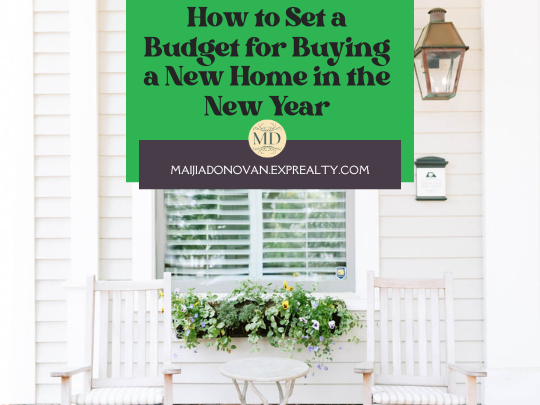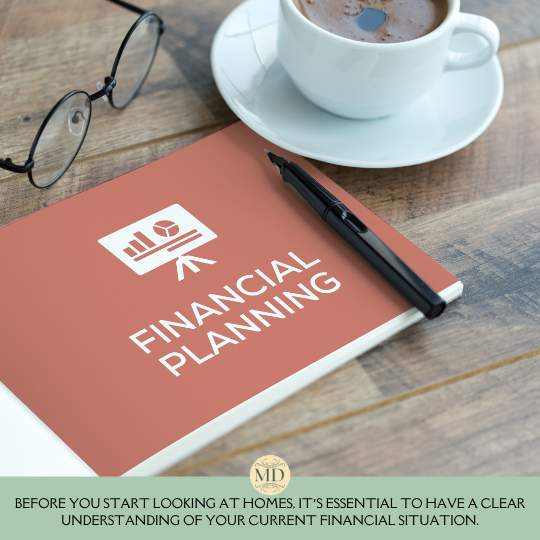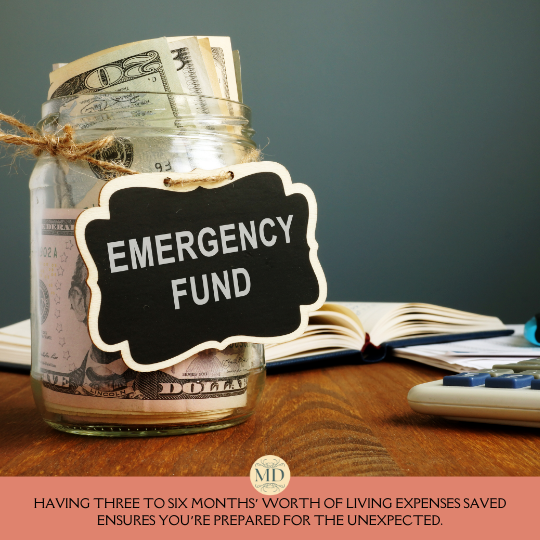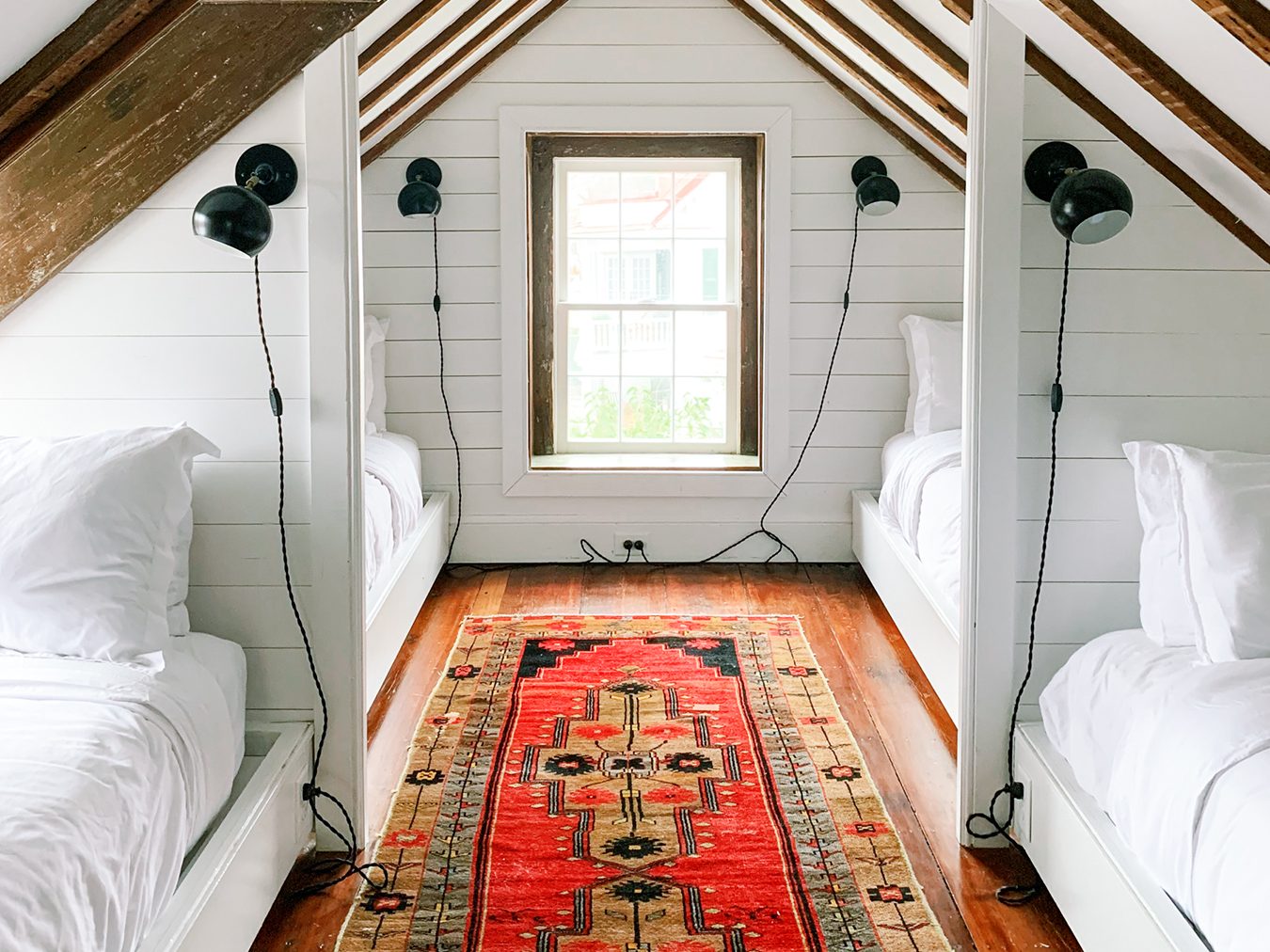
The New Year is a perfect time for fresh starts and new goals, and for many, that includes buying a new home. Setting a realistic budget for buying a new home is one of the most critical steps in ensuring your home-buying journey is a success. Here’s a guide to help you budget for buying a new home this year and find the perfect place to call home.
1. Assess Your Financial Picture
Before you start touring properties or falling in love with listings, it’s essential to understand your current financial picture—because a realistic budget for buying a new home starts with knowing where you stand. Begin by calculating your total household income after taxes. Next, review your savings to see how much you’ve set aside for a down payment, closing costs, and an emergency fund. Don’t forget to factor in any outstanding debts like student loans, car payments, or credit card balances. Having a clear view of these numbers will give you a solid foundation for determining what you can comfortably afford.

2. Understand Your Monthly Costs
A home is more than just the purchase price—it’s an ongoing financial commitment. Consider the following monthly expenses:
- Mortgage Payment: Principal and interest based on your loan amount and term.
- Property Taxes: These vary by location, so research tax rates in your desired area.
- Homeowners Insurance: Protects your home and possessions.
- Utilities & Maintenance: Include costs for electricity, water, heating, and routine repairs.
- HOA Fees: If applicable, these fees cover shared amenities or community upkeep.
A general rule of thumb is to keep your monthly housing costs at or below 28% of your gross monthly income.
3. Determine How Much Buying A New Home You Can Afford
The amount you can borrow will depend on factors like your credit score, income, and debt-to-income ratio (DTI). Use an online mortgage calculator to estimate your loan amount based on these variables, or better yet, consult with a mortgage lender for pre-approval.

4. Save for a Down Payment
The size of your down payment impacts your budget for buying a new home. While 20% is the traditional benchmark, many loan programs allow for lower percentages. Keep in mind that a larger down payment can help you avoid private mortgage insurance (PMI) and lower your monthly payments.
5. Don’t Forget Closing Costs When Buying a New Home
Closing costs typically range from 2% to 5% of the home’s purchase price. These fees include appraisals, inspections, title insurance, and more. Be sure to factor this into your budget for buying a new home to avoid surprises at closing.
6. Build an Emergency Fund
Owning a home comes with unexpected expenses, from appliance repairs to roof maintenance. Having three to six months’ worth of living expenses saved ensures you’re prepared for the unexpected.

7. Plan for Future Expenses
When creating your budget for buying a new home, it’s important to think beyond the purchase price. Are you planning any renovations? Will you need new furniture or updated appliances? Factoring in these additional costs and setting aside a financial cushion will help you avoid surprises and allow you to settle into your new home comfortably and confidently.
8. Stick to Your Budget for Buying a New Home
It’s easy to fall in love with a home that’s just outside your price range, but sticking to your budget for buying a new home is key to long-term financial peace of mind. Overspending might seem tempting in the moment, but it can lead to unnecessary stress and strain down the road. Stay focused on your priorities, be patient, and trust that the right home—one that fits both your lifestyle and your budget—will come along.
9. Work with a Real Estate Professional
Navigating the home-buying process can be overwhelming, but you don’t have to do it alone. A trusted real estate agent can help you identify homes that match your budget for buying a new home and guide you through negotiations, inspections, and closing.

Buying A New Home: Start Your New Year With Confidence
Buying a home is a major milestone, and setting a clear budget for buying a new home is one of the smartest steps you can take to reach that goal with confidence and peace of mind. Whether you’re a first-time buyer or moving up to your dream home, having a solid financial plan in place will help guide your decisions, keep your search focused, and make the entire process smoother and more successful.
If you’re ready to start your home search, reach out today! Let’s work together to find the perfect home for you in the New Year. Reach out at (413) 475-2779 or email me at maijia.donovan@exprealty.com to get started!



